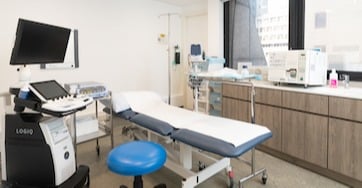Waking up to a crying baby and finding out they are in fever is frightening for new parents. Newborns can develop a higher body temperature more often than adults as they have not yet developed the functions used to regulate their temperature. While most fevers are a non-dangerous sign of the baby’s immune system fighting an infection, they can make your little one uncomfortable for a few days.
What is considered a fever for infants?
Generally, a high body temperature above 38 degrees Celsius is considered a fever in a baby. There are small differences between measuring the temperature using different types of thermometers, so you should double-check the specific threshold below:
|
Armpit thermometer |
38 °C |
|
Oral thermometer |
37.7 °C |
|
Rectal thermometer |
37 °C |
While many of these will give you a reliable estimation of your infant’s temperature, it is generally recommended to use the rectal thermometer for the best accuracy.
What to do when your baby has a fever
First of all, do not panic. While it is commonly believed that a high fever can cause brain damage among babies and toddlers, this doesn’t happen under normal circumstances. Cool bathing is also generally not recommended despite conventional wisdom and can make the fever worse as a result.
Regarding medication, you can give paracetamol (acetaminophen) to babies from 3 months old, and ibuprofen from 6 months. You should offer more fluids to your child as they are more likely to become dehydrated when experiencing a fever.
Your baby’s body temperature will likely increase due to non-fever-related factors, such as teething, sitting out in the sun, or extended crying. An infant’s body has a weaker ability to self-regulate its temperature, so it may increase or fall a little due to many everyday situations – it’s best to wait for at least an hour before giving your child fever medication – unless there are vital signs of discomfort.
When to call a doctor
In most cases, there is no need to seek immediate medical help for a fever – but you can use your child’s behaviour as a guideline. If your child is behaving normally, you can observe them and give medication and apply other home-made remedies as necessary to minimise the discomfort.
If in doubt, you can ask yourself the following questions:
- How old is your child? Children under 12 months are more likely to experience seizures due to fever, so it is good to inform your family doctor about the situation as soon as possible.
- How long has your child been in a fever? The longer the fever, the more serious the underlying source of the fever may be, so you should not wait longer than 3 days to seek medical care, even if the child is behaving normally.
- What are the other symptoms? Vomiting, diarrhoea, and tearless crying are all severe symptoms that should be reported to the emergency medical care unit immediately – it is best to call your doctor or 999 if you can’t reach your clinic.
Before consulting a doctor, you should prepare yourself to answer the following questions:
- Symptoms
- Medical history
- Home remedies or medications that were given
- Changes to the baby’s eating pattern or bowel movements
- Possible exposure to other sick people / crowded areas
Fevers can also cause febrile seizures in infants – these are usually not serious and do not cause any brain damage. However, if your child is showing symptoms of a seizure for longer than 15 minutes – not moving and/or passing out – you should call 999 immediately.
OT&P Advice
Our clinic has a team of paediatricians and family health professionals on board to provide you with professional medical care in a non-stressful environment. OT&P doctors are here to help with any questions you may have about your newborn baby’s fever and other common conditions. If you want to discuss an optimal health plan for your loved ones with a paediatrician or a family doctor in Hong Kong, contact us or book an appointment here.

 Central General Practice
Central General Practice
 Repulse Bay
Repulse Bay
 Clearwater Bay
Clearwater Bay
 BodyWorX Clinic
BodyWorX Clinic
 Central Specialist Clinic
Central Specialist Clinic
 MindWorX Clinic
MindWorX Clinic
 Partner Clinics
Partner Clinics
 Family Clinic
Family Clinic
 OT&P Annerley Midwives Clinic
OT&P Annerley Midwives Clinic




